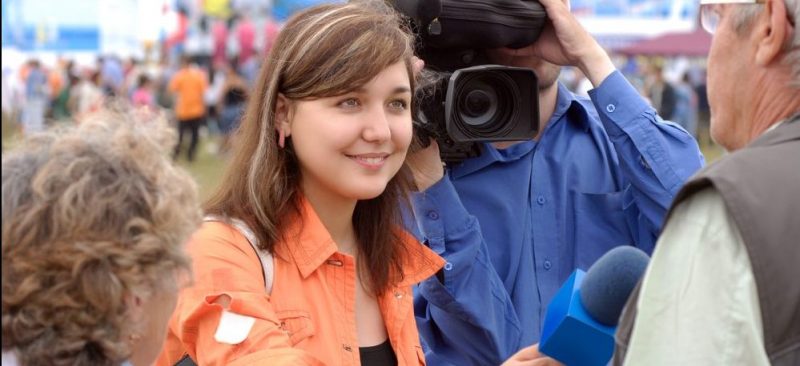 A number of things can happen that will cause a media interview to backfire, but there are ways to avoid having it become a complete disaster.
A number of things can happen that will cause a media interview to backfire, but there are ways to avoid having it become a complete disaster.
Any type of public speaking is perhaps one of the most intimidating things that a person can do. As a matter of fact, the Wall Street Journal reports that more Americans are scared of public speaking than they are of dying. And it’s no wonder why: any mishap or gaffe can live on in infamy on social media.
When going into a media interview, it helps speakers to have a “hope for the best, expect the worst” mentality. Reporters can intentionally or unintentionally try to trip up an interviewee. After all, it is their job to get to the bottom of a story. Therefore, preparation is key to making sure that everything you say is fair game for the news reporter to include in their broadcast or article.
Here are a few tricky scenarios that reporters may use and solutions on how a spokesperson can handle them.
Scenario 1: They ask questions that stump you.
The reporter asks a question in which you generally do not know the answer. This one easily catches spokespeople off guard and can easily lead to an uncomfortable silence as you scramble through your thoughts on how to best answer it.
Solution: Only tell the reporter what you know, not what you don’t know. If you are not the right person to answer a given question, it’s okay to say so. Offer to connect the reporter with someone who does know the answer.
Scenario 2: They ask you to speculate.
Among tricky questions reporters ask, predicting the future is a popular one. In trying to answer, you may inadvertently escalate a situation unnecessarily, provide incorrect information and be proven wrong.
Solution: As you prepare for your interview, write out two or three key messages, or sound bites, that you want the audience to walk away with. When you are asked this type of tricky question, you have a “transitional” or “bridging” statement prepared that will then lead the audience to your key message. For example, you may say, “That’s a good question and I won’t have a good answer to that until I receive further information (the ‘bridge’), but the most important thing that the public needs to remember right now is ……….. insert key message here.”
Scenario 3: They ask for your opinion.
Conflicts between personal opinion and agency policy can occur. But you have to be careful: Organizations have distanced themselves, often with dire consequences, from numerous public figures and celebrities due to statements that run counter to their values and brand. So you have to remind yourself of who is being asked the question: you as Jane Citizen or Joe Public, or you as the representative of your agency?
Solution: To navigate this question, address the request, create a bridge (have one ready!) and stay vigilant that you don’t say anything that contradicts your organization’s views.
Scenario 4: They ask questions out of left field.
Sometimes a question is asked that, although related to the topic at hand, is irrelevant to the final message that you hope to deliver. It’s the curveball of media interviews.
Solution: You can try to anticipate these questions by putting yourself in the reporter’s shoes and have an answer ready. Or, you can create a bridge and lead the audience to your two to three key messages that you already have prepared.
To summarize, remember these four points:
- Pause before answering a question. Feel comfortable with silence. Take the time to collect your thoughts. Pauses can always be edited out in post-production if the interview is recorded and not live.
- Don’t acknowledge points that you might contradict.
- It’s okay to say you don’t know the answer to a question. But do offer to get back to them if they’d like.
- Decline or refer questions to someone more knowledgeable if you have to.
Media interviews do not have to be as daunting as you think. A bit of preparation and practice can be the difference between one that succeeds and one that becomes a social media sensation for all the wrong reasons.
See also: Top 10 Tips for Mastering Media Interviews
Meredith Gibson is a GovLoop Featured Contributor. She uses the power of media advocacy and geographic information systems to promote systems and policy changes that contribute to healthy, safe and vibrant communities in San Diego County. Meredith is a media director at the Institute for Public Strategies, a non-profit organization that addresses equity in public health, particularly around substance abuse prevention. She writes news releases, collaborates on opinion editorials and pitches ideas and spokespersons to news outlets, amassing media coverage at the local and national levels. She also authors story maps and analyzes spatial data to inform policy decisions.





Leave a Reply
You must be logged in to post a comment.